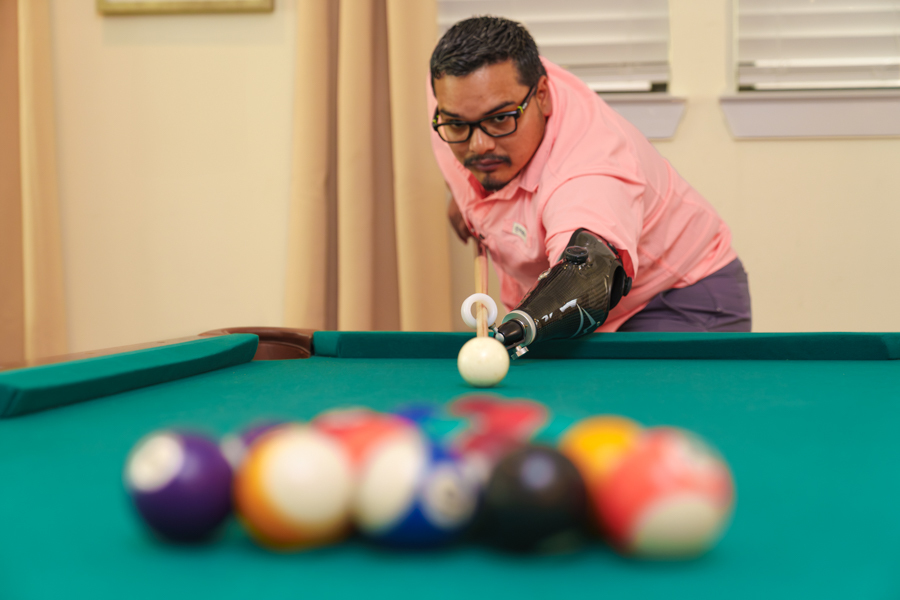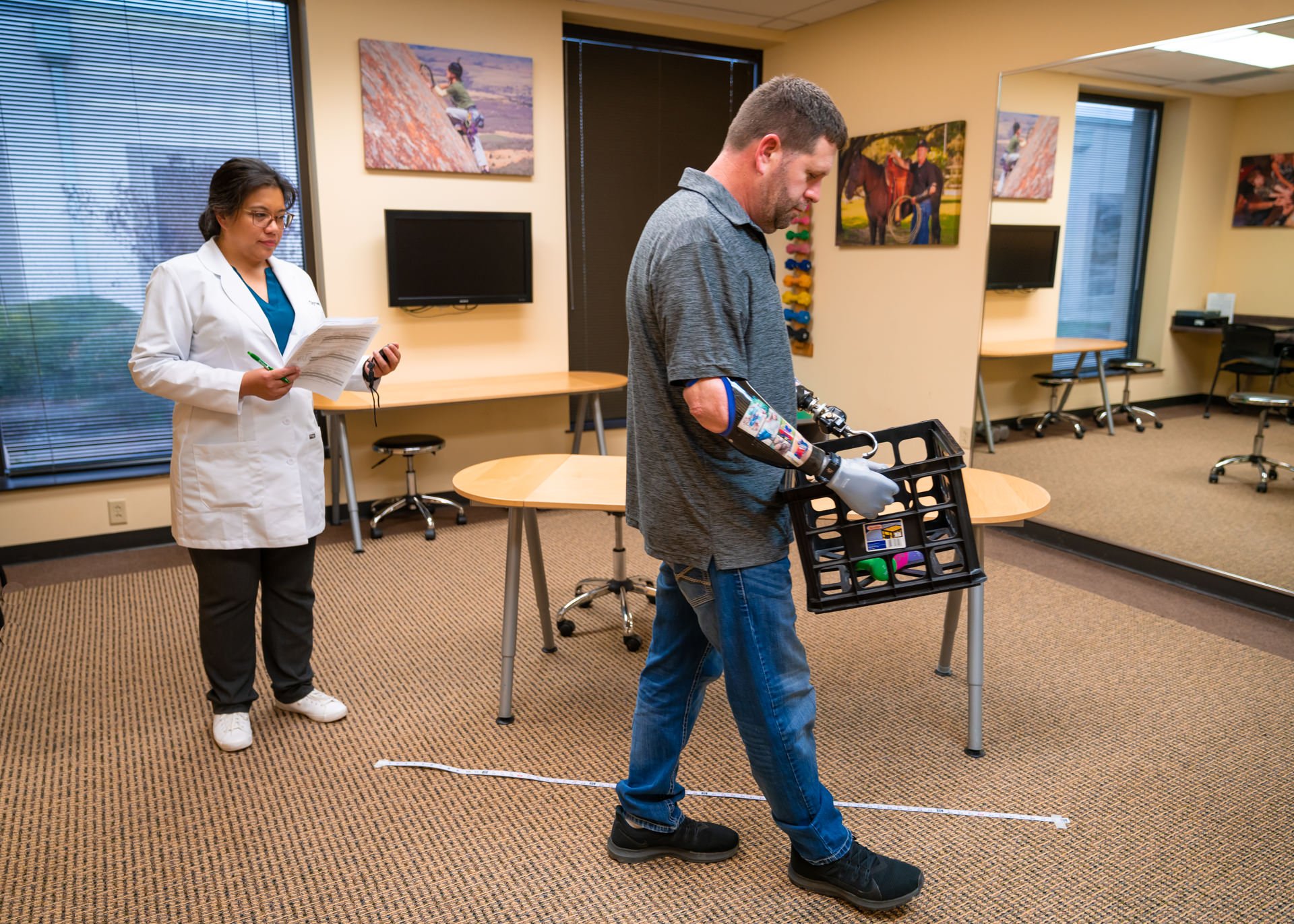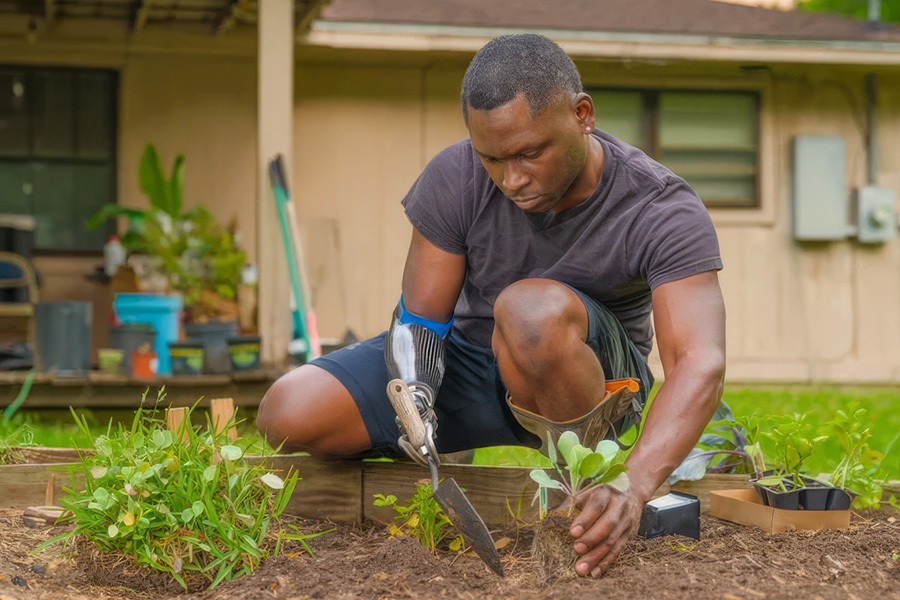We understand why people are sometimes nervous, anxious or worried about receiving prosthetic care — people with amputations or congenital limb differences have questions about what to expect from this experience, and the unknown can be nerve-wracking. In this article, we’ll look at some of the concerns people may have about reaching out to a prosthetic care center.
What if they can’t help me?
Nearly all of the time, we can help people with limb differences become successful prosthetic users. The barriers we face may be related to issues with insurance coverage, but more often they come from the patients themselves — are they willing and able to adopt this tool? Our experience with fitting and creating prostheses means that we’re prepared to take on almost any challenge — whether it’s the length or condition of the limb, or the type of prosthesis the person needs to accomplish their goals.
There are rare cases where a person’s residual limb proves so challenging that we may discuss revision surgery with them. In these cases, we have found that surgically revising a residual limb to improve comfort and function while wearing a prosthesis can result in better long-term outcomes for the patient. This option is available to people who’ve had an amputation and those who were born with a congenital limb difference.
As someone with a congenital limb difference, will a prosthesis make me less able to do things without a prosthesis?
The short answer is “no,” and the long answer is “sort of” — but that’s a good thing! The world is set up for two-handed people. Some adults with congenital limb differences may have never worn or been committed to wearing a prosthesis. That means they’ve figured out many adaptive strategies to help them manage their daily activities, jobs and hobbies. But this can potentially impact their other side – their “sound” shoulder, arm or hand. Receiving a prosthesis and learning how to use it can make life easier and decrease the risk of body aches, arthritis or other signs of overuse issues. Yes, someone with one hand may be able to fold the laundry, but if they choose to get a prosthesis and integrate it into their daily tasks, they can protect their sound side from overuse injuries.
Moving forward with getting a prosthesis means I have to face my limb loss and what my future looks like — what if I’m not ready yet?
These concerns are entirely understandable. The experience of limb loss — whether a fingertip or your entire hand or arm — can be devastating. But we ask anyone who is considering a prosthetic device to keep three things in mind:
- Visiting a prosthetic care center or having a video chat with a prosthetic care team does not mean you have to get a prosthesis.
- Even after an initial visit and consultation, there may still be a waiting period for the insurance carrier to review the submission before they authorize the prosthesis.
- It’s our job to help our patients visualize the future they want.
We use screening tools like The Wellness Inventory, and outcome measures like CAPPFUL™, CAPROQ™, CAPROQ-S™, to give us a broader understanding of each patient and the challenges they’re facing. We’ve worked with people who were unsure about what they wanted, what their future could look like, or whether using a prosthesis would be helpful. These same people have gone on to be fit with a functional, comfortable, customized prosthesis, and we have taught them how to integrate it into their lifestyle. It’s about more than our patients walking away happy — it’s about providing them with the tools and prosthetic training they need to thrive.
If you or someone you know would like more information on how to receive upper limb prosthetic care from the most experienced upper limb prosthetic care provider in the world, please contact us. Our initial consultations are complimentary, and are simply an opportunity to learn more about prosthetic rehabilitation and how it can help you live a more active life. We encourage you to ask a friend or family member to be part of your video consultation or in-person appointment.
If you’ve been fit with a prosthesis and felt nervous, scared or anxious about your first meeting with a prosthetic care team, please tell your peers about your experience in the comment section below. We’d love to hear from you!







%20President%20and%20Senior%20Clinical%20Director.jpg?width=600&height=600&name=John%20M.%20Miguelez%2c%20CP%2c%20FAAOP(D)%20President%20and%20Senior%20Clinical%20Director.jpg)










No Comments Yet
Let us know what you think